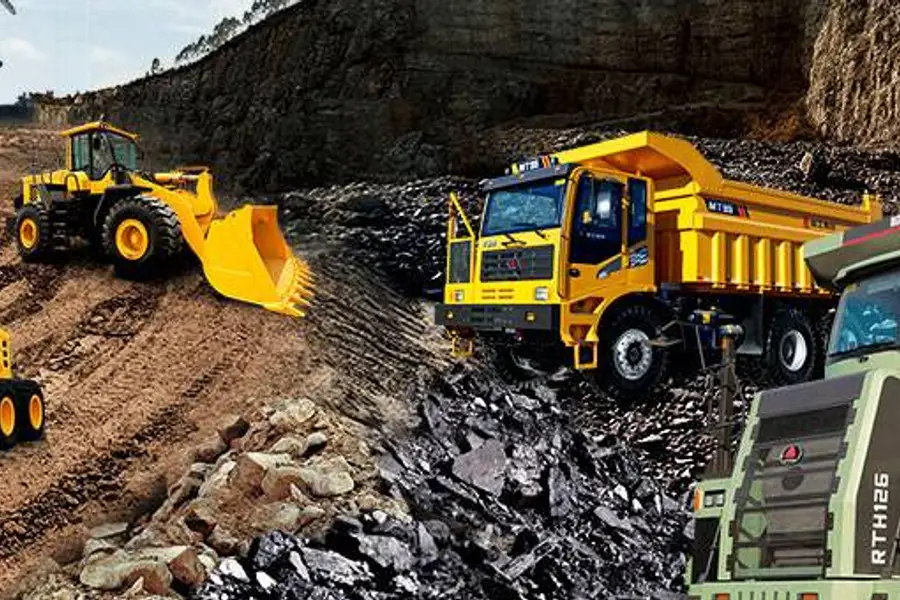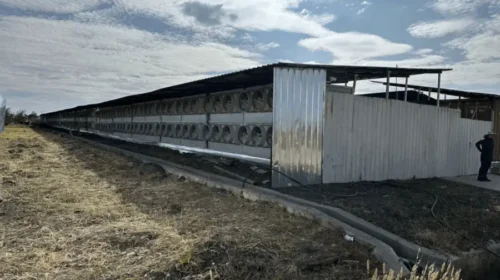Business diversification may backfire on Lingong as it seeks Hong Kong IPO

The mining equipment maker is looking to go public amid optimism around Chinese stocks and a commodities upturn, but its exposure to China’s troubled real estate market is a red flag
Key Takeaways:
- Lingong has filed for a Hong Kong IPO, aiming to raise funds to enhance its production capabilities, R&D and to expand its global operations
- The current mining boom should brighten the company’s prospects, but its exposure to China’s real estate market, a result of efforts to diversify its business, is a drag
By Warren Yang
Chinese stocks are on a tear. Prices of commodities like metals are on a firm upswing.
Put these two together, and it may sound like a no-brainer that Chinese makers of mining equipment should be investor darlings now. But reality isn’t that simple, as Lingong Heavy Machinery Co. Ltd. shows on its newly launched journey to a Hong Kong IPO. If anything, the company may be a cautionary tale of how business diversification can sometimes backfire.
Last Thursday, the mining equipment maker filed for a Hong Kong IPO to raise funds to enhance its production capabilities, boost R&D spending and expand its global operations. The company may feel the time is right to go public now as investors snap up almost any type of new Chinese stock coming to market. It has a relatively strong story for investors, leveraging its position as a key part of a mining industry that is thriving on the back of surging safe-haven demand for precious metals like gold and growing needs for minerals used for everything from electric vehicles to semiconductors.
Yet Lingong’s actual financial performance isn’t so inspiring. Its revenue did increase more than 20% to 12 billion yuan ($1.7 billion) last year from 2023, according to its prospectus. But the company’s sales contracted in the first half of this year from a year earlier, although it managed to grow its net profit by improving its margins.
Lingong’s profitability is respectable, but its financial results show it certainly isn’t a high-flying company raking in profits from the current mining boom. The global mining equipment market expanded at a solid compound annual rate of almost 6% from 2020 to 2024, and it is projected to grow at a similar clip annually through 2023, according to Lingong’s IPO document, citing third-party research.
The main culprit for the company’s revenue decline in the first half of this year was a drop in sales of aerial work platforms — equipment for lifting people, tools or materials for construction or maintenance of facilities, not only in the mining industry but for other areas as well. Sales of such machinery, namely boom and scissor lifts, decreased 45% year-on-year in the first half of this year. The company attributed the sharp decline to greater competition and reductions in procurements in China.
Lingong is relatively new to aerial work platforms. It expanded into the segment in 2015, presumably as a hedge against any mining downturn and to diversify its product lines. Since then, those products have become a significant income source for the company. They accounted for as much as 40% of its total revenue in 2023, but the proportion shrank to a little more than a quarter in the first half of this year with the sales decline.
Aerial work platforms have not only helped Lingong diversify its business, but they were also boosting the company’s profitability. The gross profit margin for those products was nearly 28% in the first half of this year, far higher than the 19% for its core mining equipment.
Real estate exposure
The problem with aerial work platforms for Lingong is that they expose the company to the real estate sector, a key buyer of those products and also an area that is in a prolonged slump in China. As the country’s property slump continues with no signs of easing, the construction sector has been suffering too, which means less demand for Lingong’s equipment.
Difficulties being faced by construction companies ultimately translate into weaker demand for commodities used in their buildings and other projects, which in turn dampens demand for miners. That may explain why growth in Lingong’s core mining equipment sales is slowing. Sales for such equipment rose significantly from 2022 to last year but barely increased in the first half of this year.
Another challenge for Lingong is intense competition, both in and outside China. Although it calls itself a “leading global mining equipment and aerial work platform company,” it’s not dominant in either segment. When there’s a lot of competition, it’s hard for a company with a relatively small market share to make big profits.
Lingong is looking to diversify geographically as well and boost sales outside China, something a lot of Chinese companies are trying to do these days as the country’s economy stagnates after years of rapid growth. Lingong’s overseas sales, spanning Asia, Europe, Africa and the Americas, accounted for 44% of its overall revenue in the first half of this year, up sharply from 31% a year earlier and 27% in 2022.
Such geographic diversification is encouraging, but the company’s mediocre financial performance isn’t likely to awe many investors at this point. It’s a boom time for Chinese companies looking to raise funds from IPOs now, as Hong Kong looks set to take the global fundraising crown for new listings this year. But that doesn’t mean that investors won’t be selective, especially when there’s a huge influx of new offerings like now.
At the end of the day, competition is stiff not only for business but also for also for capital-raising, which could bode poorly for Lingong due to its real estate exposure that could turn off investors.
To subscribe to Bamboo Works weekly free newsletter, click here





